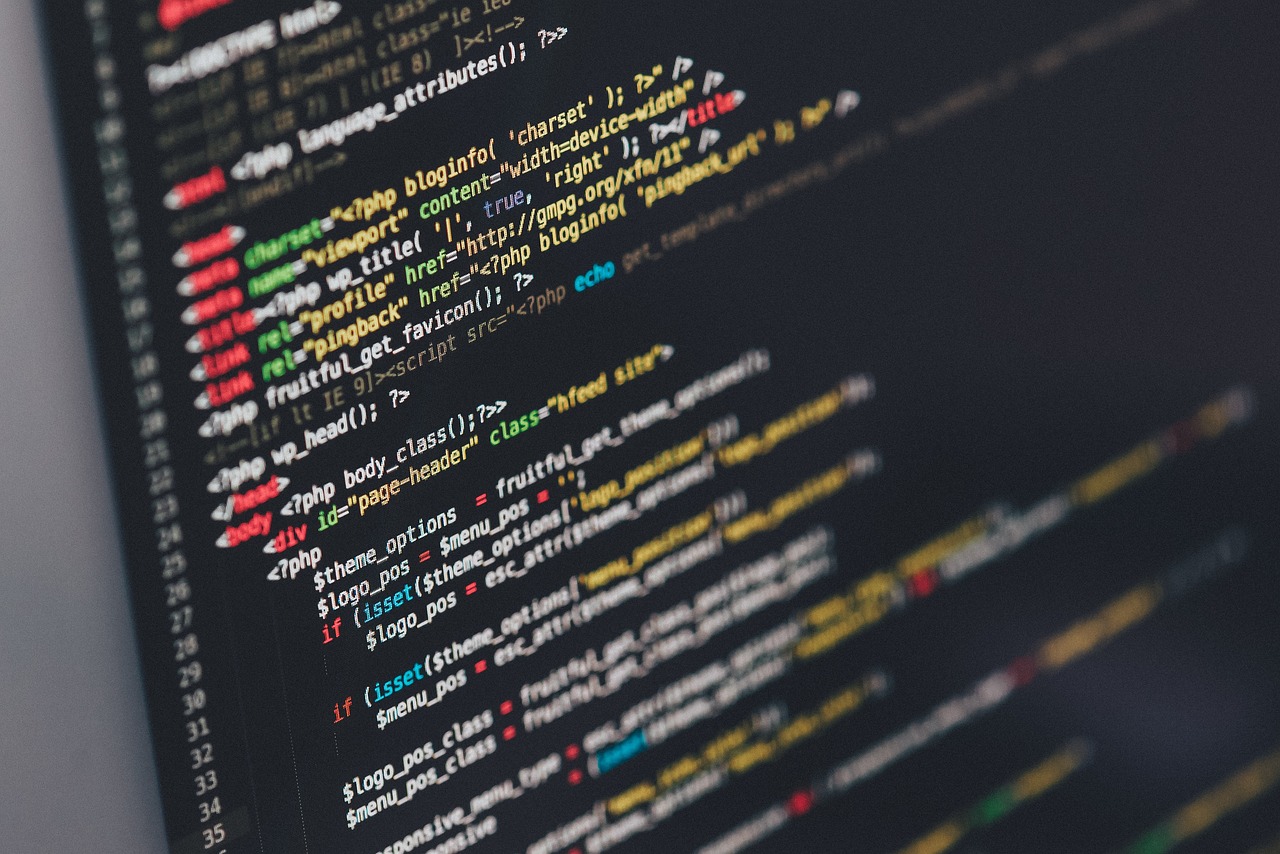The Future of Voting - How Blockchain Can Ensure Election Integrity
In an era where technology is reshaping every aspect of our lives, the voting process is no exception. Imagine a world where every vote is not only counted but also verified in a way that is transparent and tamper-proof. This world is not just a distant dream; it is becoming a reality through the revolutionary power of blockchain technology. As we dive into this article, we will explore how blockchain can enhance the integrity of elections, ensuring that democracy thrives in the digital age.
At its core, blockchain is a decentralized ledger technology that allows for secure and transparent record-keeping. Unlike traditional databases, which are controlled by a single entity, blockchain operates on a network of computers, making it nearly impossible to alter past records without consensus from the majority. This decentralized nature is what makes blockchain an attractive solution for the voting process. Each transaction, or vote in this case, is recorded in a block and linked to the previous block, creating a chain of data that is both secure and easily auditable. By utilizing this technology, we can create a voting system that is not only efficient but also trustworthy.
Election integrity is the backbone of any democratic society. It ensures that every vote counts and is accurately represented. In recent years, however, maintaining this integrity has become increasingly challenging. Issues such as voter fraud, misinformation, and lack of transparency have plagued electoral processes worldwide. To combat these challenges, technology must play a pivotal role. Blockchain offers a promising solution by providing a secure platform where votes can be cast, recorded, and verified without the risk of tampering.
Traditional voting systems face numerous hurdles that can undermine public trust. These include:
- Voter Fraud and Manipulation: Instances of fraudulent voting can severely impact election outcomes. From impersonation to ballot stuffing, these actions erode the integrity of the electoral process.
- Lack of Transparency: Many voters feel disconnected from the electoral process, often questioning whether their votes are counted accurately. This lack of transparency can lead to widespread disillusionment.
Voter fraud remains a significant concern in elections. It can manifest in various forms, such as duplicate voting, where an individual casts multiple ballots, or identity theft, where someone votes using another person's name. Blockchain can mitigate these risks through secure verification methods. By requiring voters to authenticate their identities through a secure blockchain network, we can significantly reduce the chances of fraud and ensure that each vote is legitimate.
Transparency in the electoral process is crucial for public confidence. Voters need to know that their voices are heard and that their votes are counted accurately. Blockchain technology enhances transparency by providing verifiable audit trails for every vote cast. Each transaction is recorded in a way that can be independently verified, allowing for real-time tracking of votes and ensuring that any discrepancies can be easily identified and addressed.
Blockchain has the potential to transform voting by ensuring secure, anonymous, and verifiable ballots. Imagine casting your vote from the comfort of your home, knowing that it is securely recorded and cannot be altered. With blockchain, this is possible. By implementing smart contracts, we can create a system where votes are automatically counted and verified, reducing the chances of human error and manipulation. This not only streamlines the voting process but also enhances the overall experience for citizens.
Several pilot projects have tested blockchain technology in real-world voting scenarios. These case studies provide valuable insights into the practical applications of blockchain in elections. Let's take a closer look at two notable examples:
Estonia is a pioneer in digital governance, including online voting. Their blockchain-based voting system allows citizens to cast their votes securely from anywhere in the world. The benefits of this system have been significant, including increased voter participation and reduced costs associated with traditional voting methods.
Utah conducted a blockchain voting pilot for overseas voters, allowing them to participate in elections securely. The findings from this experiment have implications for future voting practices, demonstrating that blockchain can significantly enhance the voting experience and increase trust in electoral processes.
Q: What is blockchain technology?
A: Blockchain is a decentralized ledger technology that records transactions in a secure and transparent manner, making it nearly impossible to alter past records.
Q: How can blockchain ensure election integrity?
A: By providing a secure platform for voting, blockchain can reduce the risk of fraud and enhance transparency, ensuring that every vote is counted accurately.
Q: Are there any real-world examples of blockchain in voting?
A: Yes, Estonia and Utah have successfully implemented blockchain technology in their voting systems, showcasing its potential to improve electoral processes.

Understanding Blockchain Technology
Blockchain technology is often regarded as the backbone of cryptocurrencies, but its potential extends far beyond digital currencies. At its core, a blockchain is a decentralized ledger that records transactions across many computers in a way that ensures the registered transactions cannot be altered retroactively. This means that once a transaction is recorded, it is practically impossible to change it without the consensus of the network, making it incredibly secure and transparent.
Imagine a digital notebook that everyone can see but no one can erase. Each page of this notebook represents a block, and each block is linked to the previous one, forming a chain—hence the name blockchain. This structure not only enhances security but also fosters trust among users, as everyone can verify the information independently.
To break it down further, here are some fundamental principles of blockchain technology:
- Decentralization: Unlike traditional databases that are controlled by a central authority, blockchains distribute data across a network of computers. This means there is no single point of failure, making it much harder for malicious attacks to succeed.
- Transparency: Every transaction is visible to all participants in the network. This transparency helps to build trust, as anyone can audit the data.
- Immutability: Once data is added to the blockchain, it cannot be changed or deleted. This feature is vital for voting systems, where the integrity of each vote must be preserved.
- Security: Blockchain uses cryptographic techniques to secure data. Each transaction is encrypted and linked to the previous transaction, creating a secure chain that is nearly impossible to break.
Now, how can this technology be applied to voting systems? By utilizing blockchain, we can create a voting process that is not only secure but also ensures that every vote is counted accurately. Voters can cast their ballots from anywhere, knowing that their votes are recorded in a tamper-proof manner. This can significantly enhance participation rates, especially among those who may have difficulty reaching polling places.
Moreover, the use of blockchain can streamline the entire voting process. Instead of relying on paper ballots and manual counting, votes can be cast electronically and tallied automatically. This not only saves time but also reduces the potential for human error. In a world where technology is advancing rapidly, embracing blockchain for voting could be the key to a more efficient and trustworthy electoral process.
In essence, understanding blockchain technology is essential for grasping its potential impact on voting integrity. As we move forward into an increasingly digital age, leveraging this technology could be the game-changer that democracy needs to thrive.

The Importance of Election Integrity
Election integrity is the bedrock of any democratic society. It ensures that every vote is counted, accurately reflects the will of the people, and upholds the principles of fairness and transparency. In a world increasingly driven by technology, maintaining this integrity has become more challenging yet more critical than ever. With the rise of digital platforms and the internet, the way we conduct elections has evolved, but so have the threats to their integrity. From voter fraud to misinformation, various issues can undermine public trust in electoral processes.
One of the primary challenges in ensuring election integrity is the manipulation of voter data. This can occur through various means, such as hacking into voter registration databases or using social media to spread false information about candidates or voting procedures. The repercussions of such actions can be devastating, leading to disenfranchisement and a lack of confidence in the electoral system. In fact, studies have shown that when people perceive their elections as unfair or compromised, they are less likely to participate in future elections, creating a vicious cycle of apathy and distrust.
Moreover, the lack of transparency in traditional voting systems can exacerbate these issues. Many voters feel left in the dark about how their ballots are counted and how election outcomes are determined. This uncertainty can lead to skepticism about the legitimacy of results. Transparency is not just a buzzword; it’s a necessity for fostering trust among voters. When people can see and verify that their votes are being counted correctly, they are more likely to believe in the integrity of the election process.
To illustrate the importance of election integrity, consider the following key factors:
- Trust in Democracy: Without integrity, citizens lose faith in their democratic institutions, which can lead to political instability.
- Accurate Representation: Every vote must count to ensure that elected officials truly represent the will of the people.
- Deterrence of Fraud: Implementing robust measures to protect election integrity can deter potential fraudsters.
In conclusion, the importance of election integrity cannot be overstated. It is essential for maintaining public trust, ensuring accurate representation, and deterring fraudulent activities. As we look to the future, leveraging technology like blockchain could provide innovative solutions to enhance election integrity, ultimately safeguarding the very foundation of our democracy.
Q: Why is election integrity important?
A: Election integrity is crucial because it ensures that every vote counts, accurately reflects the will of the people, and maintains public trust in democratic processes.
Q: What challenges threaten election integrity?
A: Challenges include voter fraud, misinformation, lack of transparency, and manipulation of voter data, all of which can undermine public confidence in elections.
Q: How can technology improve election integrity?
A: Technologies like blockchain can enhance security, transparency, and verifiability in the voting process, making it more difficult for fraud to occur.

Current Challenges in Voting Systems
In today's digital age, voting systems face a myriad of challenges that threaten the very foundation of democracy. One of the most pressing issues is voter fraud, which can occur in various forms, from impersonation at the polls to ballot tampering. This not only undermines the integrity of elections but also erodes public trust. Imagine casting your vote only to find out later that it was never counted. Frightening, isn’t it? The fear of fraud can discourage people from participating in elections altogether, leading to lower voter turnout and a less representative democracy.
Another significant challenge is the spread of misinformation. In an age where social media can amplify false narratives at lightning speed, voters are often bombarded with misleading information about candidates, policies, and even the voting process itself. This can create confusion and skepticism, causing citizens to question the legitimacy of the electoral process. For instance, if a rumor circulates that a certain voting method is rigged, it can dissuade people from voting, ultimately skewing the results.
Furthermore, the lack of transparency in traditional voting systems is a major concern. Many voters feel disconnected from the electoral process, unsure of how their votes are counted and whether they are accurately represented. This opacity can lead to a sense of disenfranchisement, as individuals may believe that their votes are simply lost in a black box of bureaucracy. Without clear visibility into the voting process, it’s challenging to foster public confidence in election outcomes.
The combination of these challenges creates a perfect storm that threatens electoral integrity. Election authorities must navigate these treacherous waters carefully, implementing robust systems that not only secure the voting process but also build trust among voters. This is where technology, particularly blockchain, steps in as a potential game-changer. By leveraging its decentralized and transparent nature, we can address many of the issues plaguing current voting systems.
To sum it up, the current challenges in voting systems can be categorized as follows:
- Voter Fraud: Various forms of fraud undermine election integrity.
- Misinformation: The rapid spread of false information creates confusion.
- Lack of Transparency: Voters feel disconnected and uncertain about the process.
Each of these challenges not only impacts the electoral process but also influences public confidence in democracy itself. As we look toward the future, addressing these issues through innovative solutions like blockchain technology will be crucial in ensuring that every vote counts and that the democratic process remains intact.

Voter Fraud and Manipulation
Voter fraud and manipulation are serious threats that can undermine the very foundation of democracy. Imagine a scenario where every vote cast is like a whisper in a crowded room; if someone can distort those whispers, the true voice of the people is lost. In recent elections, various forms of fraud have come to light, ranging from identity theft to ballot stuffing. These acts not only compromise the integrity of the election but also erode public trust in the electoral process.
One of the most prevalent forms of fraud is identity theft, where individuals cast votes using the identities of others, often without their knowledge. This can occur through various means, such as hacking into voter registration databases or using stolen personal information. But what if there was a way to ensure that each vote is verifiable and linked to a unique identity? This is where blockchain technology comes into play.
Blockchain offers a solution by providing a secure and transparent method for verifying voter identities. With each voter assigned a unique digital identity on the blockchain, the risk of identity theft is significantly reduced. Each vote can be traced back to its source without revealing the voter's identity, ensuring anonymity while maintaining accountability. This dual assurance is crucial in combating fraud.
Furthermore, ballot stuffing is another tactic that has plagued elections, where individuals or groups cast multiple votes to sway the outcome. Traditional voting systems have struggled to prevent this, often relying on manual checks that can be easily circumvented. However, blockchain's inherent properties can combat this issue effectively. With a decentralized ledger, once a vote is cast, it is recorded in a way that cannot be altered or duplicated, essentially creating an immutable record of each vote.
To illustrate the impact of voter fraud, consider the following statistics:
| Type of Fraud | Percentage of Cases |
|---|---|
| Identity Theft | 25% |
| Ballot Stuffing | 15% |
| Vote Buying | 10% |
| Other Manipulations | 50% |
This table highlights just a few of the ways in which fraud can manifest in elections. The total percentage exceeds 100% because many cases involve multiple forms of fraud. The complexity of these issues calls for innovative solutions, and blockchain technology presents a viable path forward.
In conclusion, addressing voter fraud and manipulation is essential for preserving the integrity of elections. By leveraging blockchain technology, we can create a more secure and trustworthy voting environment. The potential for secure verification methods not only helps to mitigate fraud but also restores faith in the electoral process, ensuring that every vote truly counts.
- What is voter fraud? Voter fraud refers to illegal activities aimed at influencing the outcome of an election by manipulating the voting process.
- How does blockchain prevent voter fraud? Blockchain provides a secure and transparent method for verifying voter identities and recording votes, making it nearly impossible to alter or duplicate votes.
- Is blockchain voting anonymous? Yes, blockchain voting can ensure voter anonymity while maintaining accountability through unique digital identities.
- What are the benefits of using blockchain in voting? The benefits include enhanced security, transparency, reduced fraud, and increased public trust in the electoral process.

Lack of Transparency
The in traditional voting systems is a pressing issue that undermines public confidence in electoral processes. When voters feel uncertain about how their votes are counted, it can lead to skepticism and disengagement from the democratic process. Imagine casting your vote but having no clue if it truly counts or if it gets lost in a sea of bureaucratic red tape. This uncertainty can be disheartening, and it raises questions about the very foundation of democracy.
One major factor contributing to this lack of transparency is the complex nature of the voting process. Often, voters are unaware of the steps their ballots go through once they are cast. From the moment a vote is submitted to its final tally, numerous processes occur behind the scenes, many of which are not visible to the public. This obscurity can breed mistrust, as people wonder if their votes are being manipulated or miscounted.
Furthermore, incidents of election fraud and mismanagement have been documented in various elections, leading to heightened concerns about the integrity of the voting process. For instance, without a clear audit trail, it becomes challenging to verify the accuracy of results. Voters may be left wondering whether their voices are genuinely represented or if the outcomes have been influenced by external factors.
Blockchain technology offers a potential solution to these transparency issues. By providing a secure, decentralized ledger, blockchain can create a verifiable record of every vote cast. This means that, unlike traditional systems, each transaction can be traced and audited independently. Voters could have access to a transparent system where they can confirm that their votes were counted accurately. Imagine a world where you could check the status of your ballot in real-time, ensuring that it was not only received but also correctly tallied. This level of transparency could significantly boost public confidence in electoral outcomes.
In addition to enhancing transparency, blockchain can also facilitate real-time audits. Election officials can quickly verify results, and discrepancies can be addressed immediately, rather than waiting for lengthy recounts that can take days or weeks. This immediacy would not only improve the efficiency of the electoral process but also reassure voters that their choices are being handled with the utmost integrity.
To summarize, the lack of transparency in traditional voting systems poses significant challenges to public trust and engagement. By leveraging blockchain technology, we can pave the way for a more transparent, accountable, and trustworthy electoral process. The future of voting could very well depend on our ability to embrace these innovations and restore faith in the democratic process.
- What is blockchain technology? Blockchain is a decentralized digital ledger that records transactions across multiple computers securely and transparently.
- How can blockchain improve voting? Blockchain can enhance voting by providing a transparent and tamper-proof method for recording votes, ensuring that each vote is counted accurately.
- What are the benefits of transparent voting? Transparent voting increases public trust, allows for real-time audits, and reduces the risk of fraud and manipulation.
- Have any countries implemented blockchain voting? Yes, countries like Estonia and Utah have conducted pilot projects utilizing blockchain for voting, showcasing its potential benefits.

How Blockchain Can Revolutionize Voting
Imagine a world where your vote is not just a mark on a piece of paper, but a secure digital entry that is nearly impossible to tamper with. Blockchain technology offers this revolutionary potential, transforming the way we think about voting. By utilizing a decentralized ledger, blockchain can ensure that every vote is recorded transparently and securely, providing an unprecedented level of trust in the electoral process.
One of the most significant advantages of blockchain in voting is its ability to create a secure and anonymous environment for voters. When you cast your vote using a blockchain-based system, it gets encrypted and stored across a network of computers, making it almost impossible for hackers or malicious actors to alter the outcome. This security is akin to having a digital vault that safeguards your precious vote, ensuring that it remains intact and unaltered until the official tally.
Moreover, blockchain technology can enhance the voting experience for citizens. Imagine being able to vote from the comfort of your home, using your smartphone or computer. With blockchain, this is not just a dream; it can become a reality. Voters can participate in elections without the hassle of long lines or complicated paperwork. This convenience can lead to increased voter turnout, as people are more likely to engage in the electoral process when it is accessible and straightforward.
In addition to security and convenience, blockchain provides a verifiable audit trail for every vote cast. Each transaction on the blockchain is time-stamped and linked to the previous one, creating a chain of records that can be easily traced and verified. This transparency is crucial for maintaining public confidence in elections. Voters can trust that their votes are counted accurately, and any discrepancies can be quickly identified and addressed. The result? A more robust and reliable electoral process.
Furthermore, blockchain can significantly reduce the risk of voter fraud and manipulation. Traditional voting systems have vulnerabilities that can be exploited, leading to fraudulent activities that undermine democracy. By implementing blockchain, we can utilize secure verification methods such as biometric identification or cryptographic keys, ensuring that only eligible voters can cast their ballots. This level of security not only protects the integrity of the election but also enhances public trust in the system.
As we look to the future, it's essential to consider how blockchain can be integrated into existing voting frameworks. This integration will require collaboration between technology experts, government officials, and the public to ensure that the systems are user-friendly, secure, and effective. The journey toward a blockchain-enabled voting system may be complex, but the potential benefits for democracy are immense.
In summary, blockchain technology can revolutionize voting by providing a secure, anonymous, and verifiable method for casting ballots. Its ability to enhance transparency, reduce fraud, and improve voter experience makes it a compelling solution for the challenges faced by traditional voting systems. As we move forward, embracing this innovative technology could be the key to restoring faith in electoral processes worldwide.
- What is blockchain technology? Blockchain is a decentralized digital ledger that securely records transactions across multiple computers, ensuring transparency and security.
- How does blockchain improve election integrity? By providing a secure and tamper-proof way to record votes, blockchain enhances transparency and reduces the risk of fraud.
- Can blockchain voting be done remotely? Yes, blockchain allows for secure online voting, enabling citizens to cast their votes from anywhere with internet access.
- What are the challenges of implementing blockchain in voting? Challenges include ensuring user-friendliness, addressing cybersecurity concerns, and gaining public trust in the new system.

Case Studies of Blockchain in Voting
As the world embraces digital transformation, the application of blockchain technology in voting systems has gained significant traction. Several countries have embarked on pilot projects to explore how blockchain can improve electoral processes, ensuring security, transparency, and efficiency. Let's dive into some remarkable case studies that demonstrate the potential of blockchain in voting.
One of the most notable examples is Estonia, a small Baltic nation that has become a trailblazer in digital governance. Estonia's e-voting system allows citizens to cast their votes online securely. The backbone of this system is a blockchain-based infrastructure that ensures the integrity and confidentiality of each vote. By using blockchain, Estonia has created a verifiable and tamper-proof record of all votes cast, significantly reducing the risk of fraud. Moreover, the system enables voters to verify their votes, thus enhancing public confidence in the electoral process.
Another interesting case is Utah, which conducted a blockchain voting pilot program aimed at facilitating participation among overseas voters. In this experiment, registered voters living abroad were given the opportunity to cast their ballots using a blockchain-based application. This initiative aimed to address the challenges faced by overseas voters, such as mail delays and complicated voting procedures. The pilot not only demonstrated the feasibility of blockchain for remote voting but also highlighted the importance of ensuring accessibility while maintaining security.
In both cases, the results were promising. In Estonia, the e-voting system has been used successfully in multiple elections since its inception, with over 40% of voters opting for online voting in recent elections. This high participation rate showcases the effectiveness of blockchain in increasing voter turnout and engagement. On the other hand, Utah's pilot project provided valuable insights into the technical and logistical challenges of implementing blockchain in a voting context. The feedback gathered from participants is guiding future developments in blockchain voting systems.
To summarize the key takeaways from these case studies, we can look at the following table:
| Case Study | Key Features | Outcomes |
|---|---|---|
| Estonia | Online voting, blockchain verification, voter anonymity | High voter turnout, increased trust in electoral process |
| Utah | Remote voting for overseas citizens, blockchain application | Feasibility demonstrated, valuable participant feedback |
These case studies illustrate how blockchain technology can not only enhance the security and integrity of elections but also make the voting process more accessible and user-friendly. As more countries explore this innovative approach, the potential for a more transparent and trustworthy electoral system becomes increasingly tangible.
- What is blockchain technology? Blockchain is a decentralized ledger that records transactions across many computers in a way that the registered transactions cannot be altered retroactively.
- How does blockchain ensure election integrity? By providing a secure and transparent method of recording votes, blockchain technology minimizes the risk of fraud and allows for verifiable audit trails.
- Are there any risks associated with blockchain voting? While blockchain voting offers many benefits, challenges such as technology access, cybersecurity threats, and the digital divide must be addressed to ensure its success.

Estonia's Digital Voting System
Estonia has emerged as a trailblazer in the realm of digital governance, particularly when it comes to online voting. Since the implementation of its digital voting system in 2005, Estonia has continually refined and improved its processes, making it one of the most advanced electoral systems in the world. By leveraging blockchain technology, Estonia ensures that its voting system is not only efficient but also secure and transparent, addressing many of the concerns that plague traditional voting systems.
The backbone of Estonia's digital voting system is its use of a secure digital identity, which allows citizens to cast their votes from anywhere in the world. This system has been instrumental in increasing voter participation, especially among expatriates. With just a few clicks, voters can access the online platform, verify their identity, and submit their ballots. The entire process is designed to be user-friendly, making it accessible to a broad audience.
One of the standout features of Estonia's digital voting system is its emphasis on transparency and security. Every vote cast is recorded on a blockchain, creating an immutable record that is nearly impossible to tamper with. This not only enhances the integrity of the electoral process but also provides a verifiable audit trail. Voters can confirm that their votes were counted accurately without compromising their anonymity. This level of security and transparency is a game changer for public trust in the electoral process.
Moreover, Estonia has implemented various measures to combat potential threats to their voting system. For instance, the government conducts regular security audits and employs advanced cryptography to protect voter data. This proactive approach has helped Estonia maintain a robust and resilient voting system, even in the face of increasing cyber threats globally.
In summary, Estonia's digital voting system serves as a shining example of how blockchain technology can revolutionize the electoral process. By prioritizing security, transparency, and accessibility, Estonia not only enhances voter confidence but also sets a precedent for other nations considering similar digital solutions. The success of Estonia's approach may very well pave the way for a new era in voting, where technology and democracy coexist harmoniously, ensuring that every citizen's voice is heard and counted.
- How does Estonia ensure the security of its digital voting system?
Estonia employs advanced cryptography, regular security audits, and blockchain technology to safeguard voter data and ensure the integrity of the voting process. - Can anyone vote online in Estonia?
Yes, all eligible Estonian citizens can vote online, including those living abroad, as long as they possess a secure digital identity. - What happens if there is a discrepancy in the vote count?
Estonia's blockchain system provides an immutable record of all votes cast, allowing for a transparent and verifiable audit in case of discrepancies.

Utah's Blockchain-Based Voting Experiment
Utah has taken significant strides in exploring the potential of blockchain technology to enhance the voting process, particularly for overseas voters. In 2020, Utah County launched a blockchain-based voting pilot that allowed military and overseas residents to cast their ballots securely and conveniently from anywhere in the world. This initiative was a response to the growing need for more accessible voting methods, especially for those who are away from their home state during elections.
The pilot project utilized a private blockchain, which ensured that all votes were securely recorded and could not be tampered with. Voters were provided with a unique cryptographic key that allowed them to access the voting platform and cast their votes anonymously. This system not only increased the security of the voting process but also aimed to improve voter turnout among those who often face challenges in participating in elections due to geographical barriers.
One of the standout features of Utah's experiment was its emphasis on transparency and auditability. Each vote cast on the blockchain could be traced and verified without compromising voter anonymity. This means that, in the event of a dispute or recount, election officials could easily access an immutable record of all ballots cast. The transparency offered by blockchain technology is crucial in restoring public trust in electoral systems, which has been eroded by concerns over fraud and misinformation.
However, the experiment was not without its challenges. Some voters faced difficulties in understanding how to use the blockchain voting system, highlighting the need for comprehensive education and support. Additionally, cybersecurity concerns were paramount, as any new technology must be rigorously tested to prevent potential hacks or breaches. The Utah County election officials worked diligently to address these issues, providing resources and assistance to voters and ensuring that the system was secure.
Overall, the results of Utah's blockchain-based voting experiment were promising. Preliminary data indicated a higher voter turnout among overseas voters compared to previous elections, suggesting that blockchain could indeed facilitate greater participation in the democratic process. As we look to the future, this pilot serves as a valuable case study for other states considering the adoption of similar technologies. The lessons learned from Utah's experience could pave the way for broader implementation of blockchain in voting systems across the United States.
- What is blockchain technology? Blockchain is a decentralized digital ledger that securely records transactions across multiple computers, making it nearly impossible to alter or hack.
- How does blockchain ensure election integrity? By providing a transparent and tamper-proof record of votes, blockchain enhances the security and integrity of the electoral process.
- What were the main challenges faced during Utah's experiment? Voter education and cybersecurity concerns were significant challenges that needed to be addressed to ensure the system's effectiveness.
- Can blockchain voting be used for all voters? While the pilot focused on overseas voters, the technology has the potential to be adapted for all voters, increasing accessibility and participation.
Frequently Asked Questions
- What is blockchain technology?
Blockchain technology is a decentralized digital ledger that securely records transactions across many computers. This ensures that the recorded transactions cannot be altered retroactively, promoting transparency and trust.
- How can blockchain ensure election integrity?
Blockchain can enhance election integrity by providing a transparent and tamper-proof record of votes. Each vote can be securely verified, ensuring that it is counted accurately and preventing fraud.
- What are the main challenges in traditional voting systems?
Traditional voting systems face several challenges, including voter fraud, misinformation, and a lack of transparency. These issues can undermine public trust and confidence in the electoral process.
- Can blockchain eliminate voter fraud?
While blockchain cannot completely eliminate voter fraud, it can significantly reduce the risks by implementing secure verification methods, making it much harder for fraudulent activities to occur.
- How does blockchain enhance transparency in elections?
Blockchain enhances transparency by creating a public ledger of all votes cast, allowing for verifiable audit trails. This means that anyone can check the integrity of the voting process, thus boosting public confidence.
- What are some real-world examples of blockchain in voting?
Estonia and Utah are notable examples. Estonia has implemented a blockchain-based digital voting system that allows citizens to vote online securely, while Utah conducted a pilot project for overseas voters using blockchain technology.
- What benefits does Estonia's digital voting system provide?
Estonia's digital voting system provides numerous benefits, including increased accessibility for voters, reduced costs, and enhanced security. It allows citizens to participate in elections conveniently from anywhere in the world.
- What lessons were learned from Utah's blockchain voting experiment?
Utah's experiment highlighted the importance of security and user experience. The pilot demonstrated that while blockchain offers significant advantages, careful planning and public education are crucial for successful implementation.



















